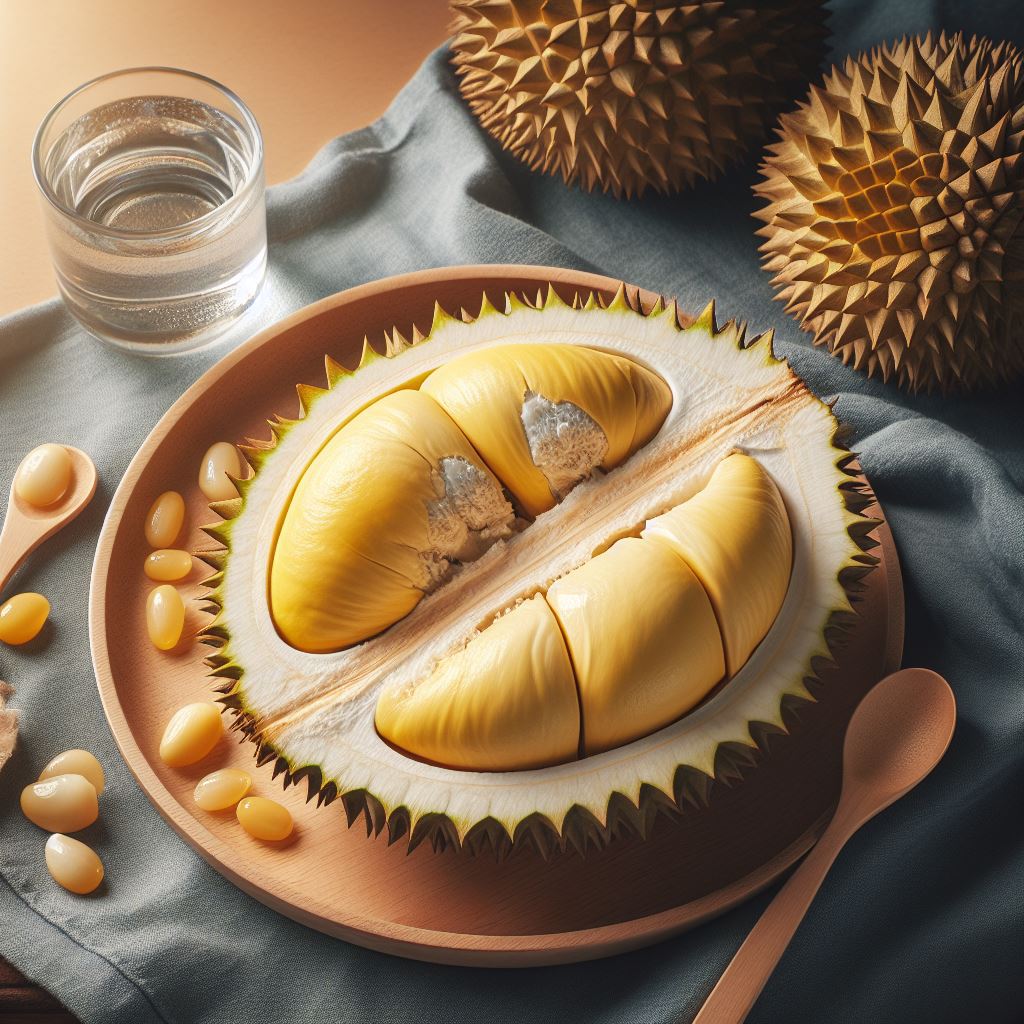Table of Contents
Introduction
Welcome to the world of durians – the spiky, smelly, and yet somehow endearingly popular fruit that has taken social media by storm. Often referred to as the ‘king of fruits’ in Southeast Asia, durians are no ordinary produce. Their unique taste, texture, and especially their strong aroma, have made them a subject of intense debate and interest across the globe.
But how did a fruit that’s so controversial come to be so widely discussed and even celebrated online? The rise of social media platforms has played a pivotal role, giving durian a stage to polarize and intrigue an international audience like never before.
The Love Affair: Why Durian Fans Can’t Get Enough
For many, durian is not just food; it’s an experience, an indulgence that’s incomparable. Here’s why some people can’t get enough of it:
A taste of heaven
Durian’s flavor is often described as a blend of sweet and savory – imagine almonds mixed with sweet, ripe cheese, and you’re getting close. The texture contributes significantly to the allure; it’s creamy, akin to thick custard, making each mouthful a rich experience.
Cultural significance
In many parts of Asia, durians are more than just a snack. They’re a centerpiece in celebrations, often given as gifts due to their premium status. The fruit’s variety and quality can symbolize the giver’s esteem for the receiver, making it a potent symbol of respect and generosity.
Health benefits
Despite its reputation for being high in calories, durians are a nutritional powerhouse packed with vitamins and minerals. They’re rich in vitamin C, B vitamins, and contain minerals like potassium and iron. This makes them not just delicious but also beneficial for health, debunking the myth that tasty can’t be healthy.
The Hate Camp: The Case Against Durian
Not everyone is enamored with durians. Here’s a look at the main reasons for some of the disdain:
The notorious scent
The aroma of durian is unmistakable and, for many, unpleasant. Scientific analyses have compared it to various compounds that smell anything from rotten onions to turpentine. This scent is a major hurdle for newbies, overshadowing the fruit’s taste and texture.
The taste debate
Even those who can get past the smell might not fall in love with the taste. For some, the combination of sweet and savory doesn’t hit the right notes, and the creamy texture that lovers rave about can be off-putting for others.
Social and cultural implications
Durian’s divisive nature can affect social interactions, with its strong smell leading to bans in public places like hotels and public transport across Southeast Asia. It’s not just a fruit; it’s a social phenomenon that can isolate as much as it unites.
Durian Goes Digital: The Social Media Sensation
Viral videos and challenges
Durian has found a vibrant life online, with countless videos of people trying the fruit for the first time. These reactions range from delight to outright disgust but always make compelling content that adds to its mystique and allure.
The meme machine
Durian’s peculiar features have made it a popular subject for memes and online humor, further embedding it in digital culture. This notoriety has sparked curiosity, driving more people to explore the fruit, either in person or through interactive online communities.
Marketing to the masses
Brands have smartly capitalized on durian’s reputation, introducing everything from durian-flavored candies to ice cream. The polarizing opinions offer a unique marketing angle; love it or hate it, you’re likely talking about it – and that’s valuable buzz in today’s market.
Conclusion: The Future of Durian in a Digital World
In our digital age, durian has found a new lease of life. Social media has not only intensified the debates around this controversial fruit but has also brought together a community of durian lovers and haters alike. Young consumers, in particular, are reshaping its image, highlighting its unique appeal and cultural significance.
As durian continues to captivate the digital world, will this pave the way for more understanding and appreciation between its fans and detractors? Only time will tell, but one thing is for sure – durian’s place in the cultural and digital mosaic is enduring and ever-evolving.
FAQs: Everything You Wanted to Know About Durian but Were Too Afraid to Ask
- Why does durian smell so strong?Durian’s potent smell is due to a combination of volatile sulphur compounds and fatty acids, which create a unique and pervasive aroma.
- Can eating durian really be dangerous?While not inherently dangerous, consuming durian in large amounts is discouraged alongside alcohol due to potential complications.
- How do I pick a good durian?Look for a fruit that feels relatively light for its size, has firm stems, and listen for a slight sound when shaken – indicating it’s ripe and ready to eat.
- What are some ways to eat durian?Apart from enjoying it fresh, you can incorporate durian into desserts like cakes, ice creams, and pastries for a tropical twist.
- Why is durian banned in some public places?Due to its strong smell, durian is banned in many public spaces in Southeast Asia to ensure comfort and convenience for everyone.
read some interesting health articles here
